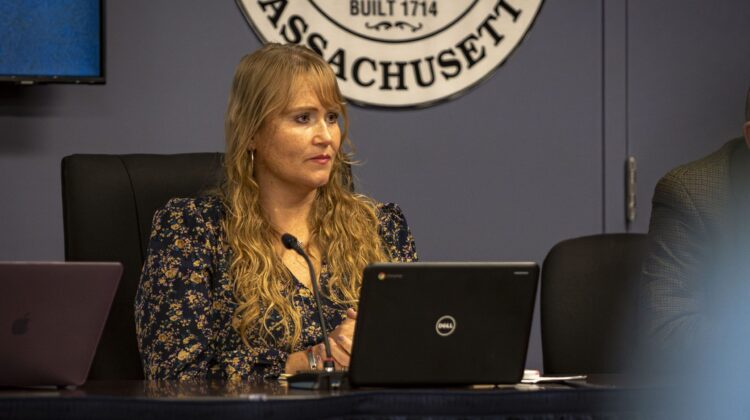The School Committee met to discuss changes to various policies, including a new cellphone and related electronic devices policy, at its meeting on Thursday.
At the beginning of the meeting, Committee Chair Kate DePrizio said she had heard some confusion, and clarified the meeting was only for discussion and there would be no votes taken.
“We want to have a really fruitful discussion with everyone weighing in and giving perspectives,” she said.
Committee members Jim Dillon and Jenny Sheehan have been a “force” on the policy committee responsible for making and reviewing these policy changes, DePrizio said.
Dillon presented the proposed new policy for cellphones and related electronic devices. He said disruptions from cellphones and other related electronic devices are a widespread, national issue.
The committee analyzed at least 15 other school districts while researching the topic, and Dillon said he noticed that districts with a stricter policy performed higher than others.
The proposed policy is broken up between elementary-, middle-, and high-school students.
The policy for elementary school encourages students to leave any electronic devices at home, but if they do bring one, they should leave it off and in their backpack during the school day.
DePrizio said these changes are “accessible” for students who need to contact their parents before or after school.
She added the student handbooks currently have rules about using electronic devices during school hours, but there is no district policy.
Creating a policy helps faculty enforce the rules, DePrizio said.
The proposed policy for middle school is similar to the elementary-school policy, but includes tiers of consequences for non-compliance. It also clarifies consequences for using electronic devices to cheat on academic work.
Committee member Jamie Hayman asked how these policies would be enforced.
“If you have a teacher who says, ‘I don’t care,’ and another teacher who says, ‘Put that away,’ you’re actually creating an equity issue,” he said.
In response, Committee Vice Chair Kristen Elworthy said she feels not establishing a policy because teachers might enforce it differently would not be beneficial.
Interim Superintendent Tom Geary said a policy is a “tool of enforcement” for teachers and principals and it is their jobs to enforce it.
“The goal is to create a culture where cellphones are not needed during the school day, not to be consequential to students and children,” DePrizio said.
Sheehan said while working on this policy, she and Dillon spoke with principals, who wanted a policy to help enforce the rules currently in place.
“We need to have a cellphone policy,” Hayman said. “I just want something that is fair, equitable, and, frankly, can be enforced.”
He added the committee will need to support principals and teachers because of the possible “blowback” from parents and students.
Dillon presented the proposed cellphone policy for high-school students, which also includes tiers of consequences for non-compliance.
The policy allows students to use cellphones and electronic devices only during study halls and lunch.
“I don’t think this is about monitoring kids or determining how they use their phones. That’s for parents to do. It’s just about keeping them off during the class,” Elworthy said.
The committee will further discuss this policy at its next meeting on July 10.



